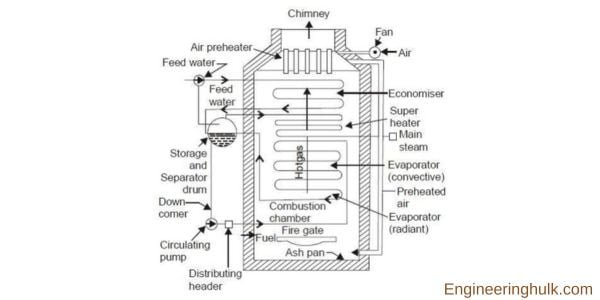Table of Contents
In the context of Indian passports, the term “ECR” stands for Emigration Check Required. The Indian Government classifies individuals into two categories regarding their travel requirements: ECR and Non-ECR. Non-ECR (also known as ECNR) category refers to individuals who are not required to undergo an emigration check during their travel abroad.
What is the Non-ECR Category
The Non-ECR category primarily includes individuals who possess certain educational qualifications, specific job roles or have held a valid passport for a specific period. The purpose of this classification is to streamline the emigration process for Indian citizens traveling to certain countries for employment opportunities.
Who is Eligible for Non-ECR Category?
1. Educational Qualifications:
Individuals who have passed their matriculation (10th grade) or equivalent examination are eligible for the Non-ECR category. This means that if you hold a higher degree, such as a diploma, bachelor’s, or master’s degree, you automatically fall into the Non-ECR category.
2. Government Employees:
All serving and retired government employees, along with their spouses and dependent children, are eligible for the Non-ECR category. This includes employees of central or state government, public sector undertakings (PSUs), statutory bodies, and autonomous institutions.
3. Income Tax Payers:
Individuals who have paid income tax for the last year or have a TDS (Tax Deducted at Source) record can apply for the Non-ECR category. This criterion ensures that taxpayers who contribute to the national economy receive the benefit of a hassle-free emigration process.
4. Individuals with Valid Visas:
If you possess a valid visa for countries such as the United States, the United Kingdom, Canada, Australia, and New Zealand, you are eligible for the Non-ECR category. This provision recognizes the fact that individuals with visas to these countries have undergone extensive background checks, reducing the need for further emigration checks.
5. Seafarers:
Indian seafarers holding Continuous Discharge Certificates (CDC), also known as a seafarer’s identity document, are exempted from the ECR requirement. The CDC serves as proof of their employment in the maritime industry and grants them Non-ECR status.
6. Individuals above 50 years of age:
Indian citizens who are above 50 years of age and have never traveled abroad for employment are eligible for the Non-ECR category. This provision acknowledges their long-standing residence in India and exempts them from additional emigration checks.
Benefits of Non-ECR Category
1. Streamlined Emigration Process:
Non-ECR category passport holders are not required to obtain an emigration clearance certificate before traveling to certain countries for employment purposes. This saves time and simplifies the documentation process, making it easier for individuals to pursue overseas job opportunities.
2. Priority Consular Services:
Non-ECR passport holders enjoy certain privileges when it comes to consular services provided by Indian embassies and consulates abroad. They may receive faster processing of visa applications, assistance during emergencies, and other necessary support.
3. Career Opportunities:
The Non-ECR category expands the horizons for Indian job seekers by enabling them to explore a wider range of employment opportunities abroad. By exempting them from the emigration check, it encourages skilled professionals to contribute to the global workforce while promoting economic growth.
Essential Documents Required for Non-ECR Category
1. Valid Passport
The foremost document required to determine your Non-ECR category is a valid passport. Ensure that your passport is not classified as ECR (Emigration Check Required). If your passport currently falls under the ECR category, you will need to update it to Non-ECR status by applying for a reissue.
2. Educational Qualification Certificates
To establish Non-ECR status based on educational qualifications, you need to submit the following documents:
– Copies of educational certificates attested by a competent authority.
– Mark sheets or transcripts indicating successful completion of at least matriculation (10th grade) or an equivalent examination.
3. Employment Proof
Depending on your employment status, you will need to provide specific documents to establish Non-ECR category eligibility:
a. Government Employees:
– Copy of the government employee identity card.
– Proof of employment such as a salary certificate or a “no objection certificate” (NOC) from the employer.
b. Private Sector Employees:
– A letter from the employer stating the nature of employment, duration of service, and designation.
– A salary certificate or salary slips for the last one year.
c. Seafarers:
– Copy of the Continuous Discharge Certificate (CDC), also known as a seafarer’s identity document.
– A letter from the employer or shipping company affirming your employment as a seafarer.
4. Income Tax Documents
If you fall into the income taxpayer category, you will need to provide the following documents:
– Copy of the Income Tax Return (ITR) acknowledgment for the last year.
– TDS (Tax Deducted at Source) certificates for the last year, if applicable.
5. Visa Documents
If you possess a valid visa for countries like the United States, the United Kingdom, Canada, Australia, or New Zealand, you need to provide the following documents:
– Copy of the valid visa pages in your passport.
– Additional supporting documents related to your visa, such as a work permit or residence permit.
6. Age and Travel History Proof
If you are over 50 years of age and have never traveled abroad for employment, you must submit the following documents:
– Birth certificate or any valid age proof document.
– A self-declaration stating that you have not traveled abroad for employment purposes previously.
Also, read Aikyashree Scholarship
































Comment on “Understanding Non-ECR Category: A Comprehensive Guide”
Comments are closed.